Synology may have started as a consumer/ prosumer NAS vendor years ago, but it now thoroughly addresses the needs of the small and medium business segment with its professional offerings. As the newest offering, the Synology RS3618xs shows just how mature the company’s solutions have become in the space. Synology just launched a 2U rackmount NAS unit that is designed to do more than just securely storing files.
Synology RS3618xs Overview
In the most basic sense, the Synology RS3618xs is a 2U 12-bay 3.5″ NAS that can also support 2.5″ drives. It comes with a single PSU and four 1GbE ports which target the lower-end of the rackmount NAS market.
Beyond these specs, the Synology RS3618xs is more interesting. Expansion wise it has the ability to utilize multiple half-height PCIe x8 networking options, so one can add 10GbE (10Gbase-T and SFP+), 25GbE (SFP28) and 40GbE (QSFP+) networking to the unit. Synology even advertises that this is its preferred way to deliver high-speed networking. The unit also has two expansion ports for adding additional disk shelves. With up to 36 storage drives this can easily act as a file server for hundreds of TB worth of data, enough for most small businesses, even those with several IP security cameras.
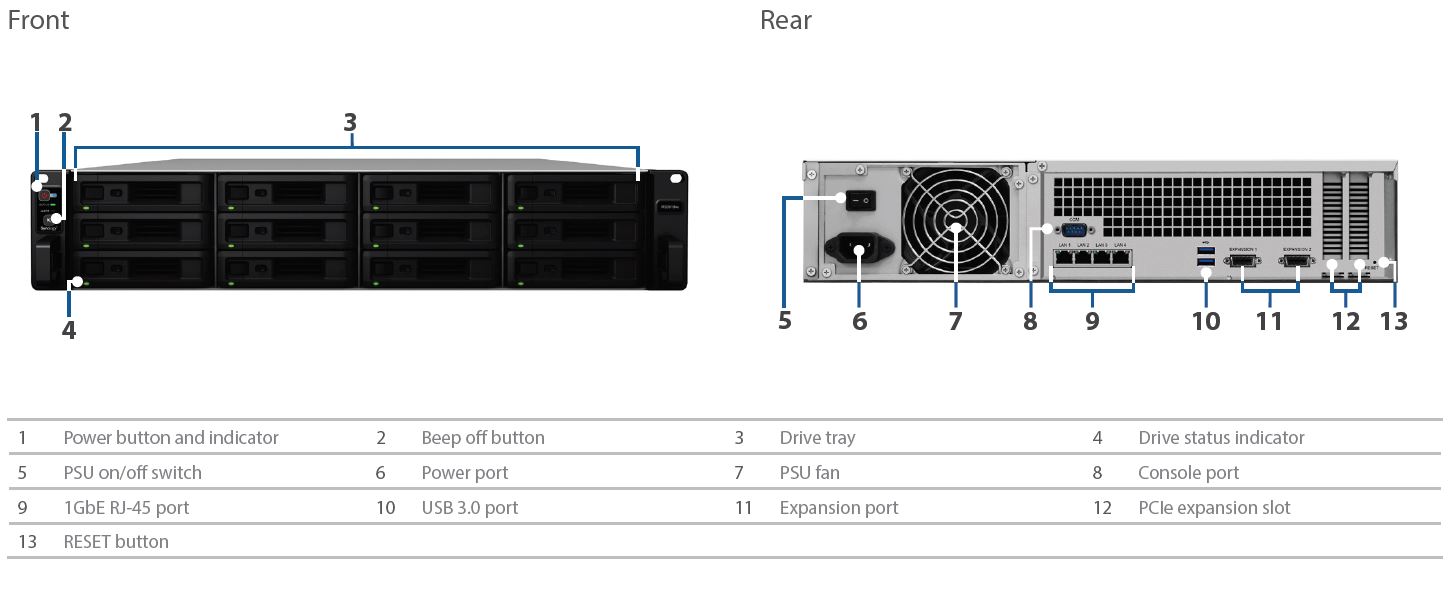
The CPU is a Xeon D-1521 4 core/ 8 thread model. You can see our benchmarks here for the similar Xeon D-1520. the unit comes with 8GB of ram but supports up to 64GB. That is important as Synology is pushing its NAS servers, especially rackmount units, to become SMB office application hubs. Synology offers a full app suite for document sharing and e-mail for example. The company also has a robust virtualization to run business applications on. We may suggest upgrading RAM if you are going to use these features.
In all, Synology is positioning its new unit to be the IT hub of a small to medium business.
Synology RS3618xs Key Hardware Specs
We pulled a few specs on the Synology RS3618xs:
- CPU: Intel Xeon D-1521 quad-core 2.4GHz, Turbo Boost up to 2.7GHz
with AES-NI hardware encryption engine - Memory: 8GB DDR4-2133 ECC UDIMM (expandable up to 64GB)
- Drives: 12 x 3.5″ or 2.5″ SATA SSD/HDD (drives not included)
- Expansion ports: 2 x Storage shelf expansion port
- External ports: 2 x USB 3.0 port
- Network: LAN 4 x 1GbE (RJ-45)
- PCIe slots: 2x PCIe 3.0 x8 slot
Overall, these are solid specs for this class of product.

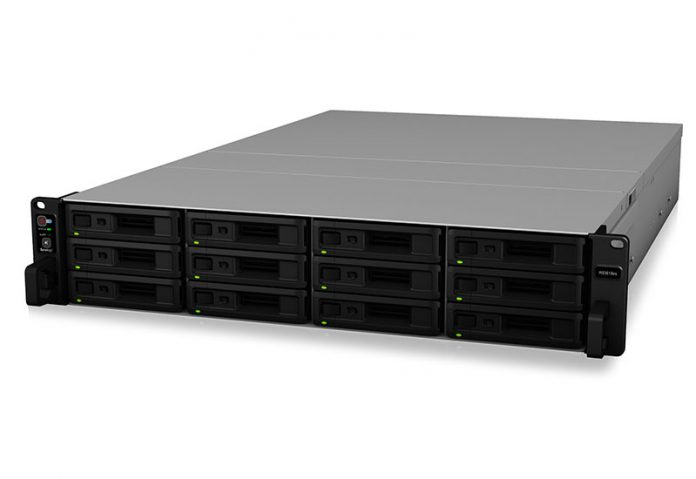
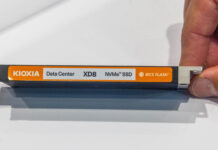
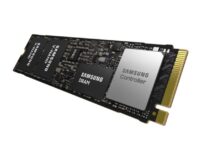
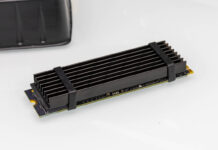
Without having redundant power supplies or 10G networking built in, these are barely aimed at more than a small business. They should have been launched with the newer Xeon-D parts and better NVMe support.
100% agree….lack of 10G base networking and NVMe support should be baseline in 2018. I would get 1GB and SATA support in 2008….not impressed for 10 years of the same stats.
re Jared: Synology was and is company aiming amateurs and home users (hence infantile UI of DSM) and like you said small business here and there with few products (even though they would *wish* to be small to medium but they sell hardly any)
This is because of the operating system being very primitive in way too many parts to mention and Synology development support horrible. They are known to have many long standing issues and also ignore user requests/features for many many years, the brightest example being FDE thread (full disk encryption) which is around 7 years old and left ignored. I leave google exercise and entertain you (actually 6.2 improved thing a bit with hidden checkbox but still not there).
And up until recently they been stuck on ancient linux kernel branches 3.x which they are even for 2019 models (3.10) with few models going to 4.4x which is also soon obsolete.
Stay away from Synology and choose some enterprise brand for your products, where basic things like full disk encryption work out of the box. Correction. Things like FDE *works*. As Synology is incapable of having or providing it.
We went from FreeNAS to Server 2016 and are happy with both solution, but you can’t beat Windows these on file storage fronts these days and because clients are windows as well, you gain advantage of some MS only technologies (say work folders) which other provider can’t do.
Synology for businesses is one big lol
This looks like an OK box. Maybe no redundant PSU but many don’t have A+B power anyway.
Robert RHEL is still on 3.10 or whatever in its current rev. CentOS is the same. I don’t understand why a vendor providing a closed solution with a stable kernel is a bad thing. RHEL and CentOS are both top 5 distros?
You’re right that for many just paying more to get Windows and make it easy is worthwhile. Not everyone can afford competent Linux admins. For those people Synology has an OK solution too.